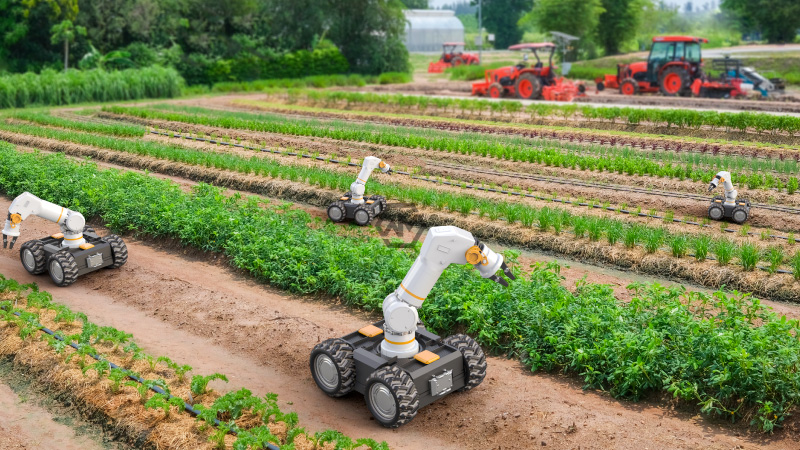- AI-driven farming technology is revolutionizing agriculture but raising global equity concerns.
- Automation may reduce labor needs, but job displacement is a growing issue.
- Widening tech gaps between countries could impact future food security.
Advancements in artificial intelligence and robotics are rapidly transforming modern farming. Once a concept rooted in science fiction, autonomous machines now plow fields, sow seeds, and harvest crops with remarkable precision—often with minimal human oversight.
However, these technological leaps come with social trade-offs. In regions where agricultural labor remains a vital source of income, the replacement of workers by machines could trigger economic disruption.
Automated Harvests: Who Gains, Who Loses in the Age of AI Farming
The affordability of cutting-edge agri-tech is a significant barrier. Wealthy nations and large-scale commercial farms are rapidly adopting robotic systems, leaving smaller producers and developing countries at a severe disadvantage. This disparity risks deepening global agricultural inequality. In areas where even basic machinery is considered advanced, the arrival of AI-operated systems is not just inaccessible—it’s incomprehensible.
A telling example involves a visiting Ukrainian delegation more fascinated by a simple grain auger than by a sophisticated combine. The grain auger represented achievable improvement; the combine, an unbridgeable gap. Similarly, donated combines in parts of Africa often end up idle due to lack of training or spare parts. Without proper infrastructure, even the best machines fail to make a lasting impact.
Moreover, knowledge gaps can become just as problematic as financial ones. As the complexity of agricultural tech grows, so does the need for specialized education, repair services, and data literacy. This raises a critical question: how do we ensure farmers across all regions can adapt to and benefit from innovation, rather than be sidelined by it?
The pace of progress must be matched with inclusive policies and scalable technologies. Otherwise, we risk a future where some nations grow excess while others struggle to feed their people—not because of land or climate, but because of unequal access to the tools of tomorrow.
As we race toward a future of fully automated farms, it’s essential to balance innovation with inclusion. Technology should feed people, not divide them.
“Our technological powers increase, but the side effects and potential hazards also escalate.” – Alvin Toffler



